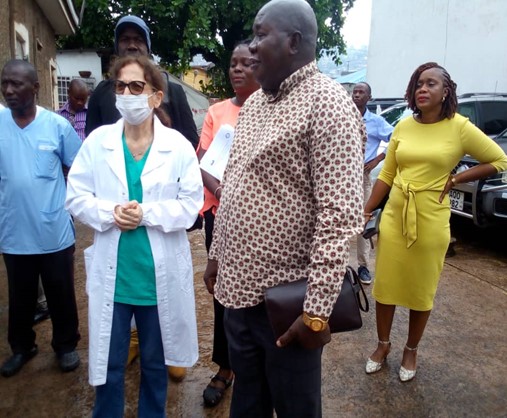Cleanliness is next to godliness
‘Cleanliness is next to godliness’ is one of the commonest clichés which we often ignore or do not put into practice in our respective communities and consequently, our environments become prone to health hazards with very alarming impact on the poor inhabitants. Most of our cities have not succeeded in their waste management projects and what is more appealing is the inability of the Freetown City Council (FCC) and Masada Company to rid Freetown of the massive garbage simmering in the Central Business District (CBD), the slums and other remote, rejected areas despite the Government of Sierra Leone and its development partners have invested zillions of Leones in the waste management project in the capital city.
I have observed with trepidation that Freetown is reverting to the dark days of the 1980’s and 1990’s when it became one of the dirtiest capital cities in Africa. Garbage was spattered in every corner or streets and the FCC was financially weak to handle the appalling situation. It was against the backdrop of the dirtiness of Freetown that when the National Provisional Ruling Council (NPRC) toppled the late President Joseph Saidu Momoh’s APC regime on Wednesday 29th April 1992, one of the decrees that the junta regime enforced was compulsory general cleaning on the last Saturday of every month. The cleaning exercise almost became a culture which every Sierra Leonean cherished. But when democracy was finally ushered in March 1996, the late President Alhaji Dr. Ahmad Tejan Kabbah made it known to every Sierra Leonean that the monthly cleaning exercise was no longer mandatory.
Notwithstanding the Executive Order from the late President, the Southern Region city of Bo continued to uphold the monthly cleaning exercise which has unarguably become a tradition.
It is no gainsaying Bo is the cleanest settlement in Sierra Leone because of the NPRC legacy. It therefore stands to reason that the local councils enact bye-laws for compulsory monthly cleaning exercise. This will help minimize the reckless spread of garbage which is serious health hazard to the public. Bye-laws should also be enacted for unscrupulous people who throw garbage in public places and drainages which often lead to flooding during heavy downpours when the drainages are blocked by the garbage.
This reckless practice is an eyesore in many parts of Freetown especially drainages leading to the slummy areas such as the Samba and Red Pump gutters.
These gutters need to be rid of the mountains of garbage which blocks the free-flow of water that could eventually lead to flooding especially when weather forecasters have already warned the general public of heavy downpours and flooding in this rainy season.
The Freetown City Council (FCC) and the Disaster Management Department in the Office of National Security (ONS) should therefore take precautionary measures against the pending heavy downpours and flooding instead of waiting for disasters to occur in Freetown and other parts of the country like last year before they would act.
Though flooding affected Freetown and many other parts of the country, yet Bo was perfectly safe because its drainages are clean and the city planners do not allow people to build in catchment areas like Freetown, which is another source of flooding in the capital.
Stay with Sierra Express Media, for your trusted place in news!
© 2016, https:. All rights reserved.





